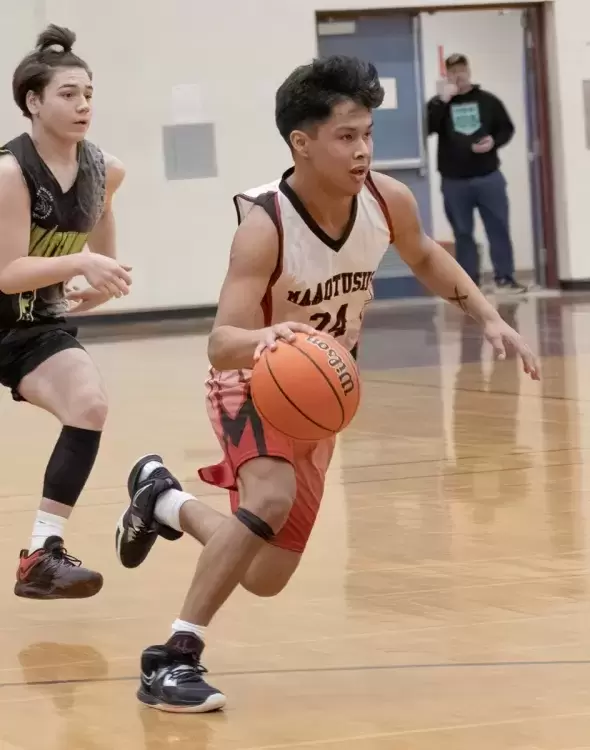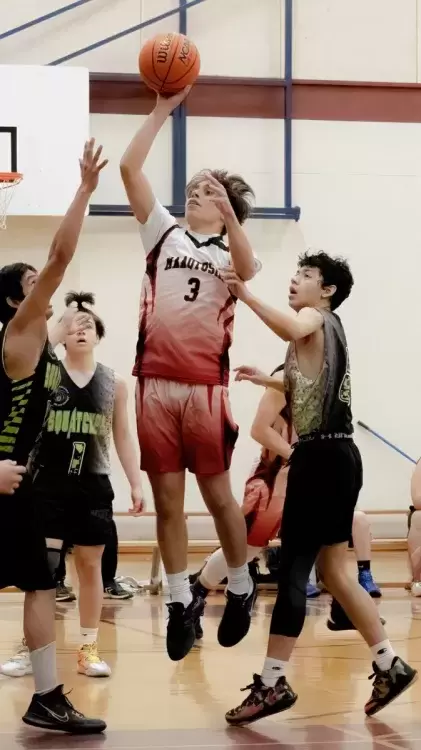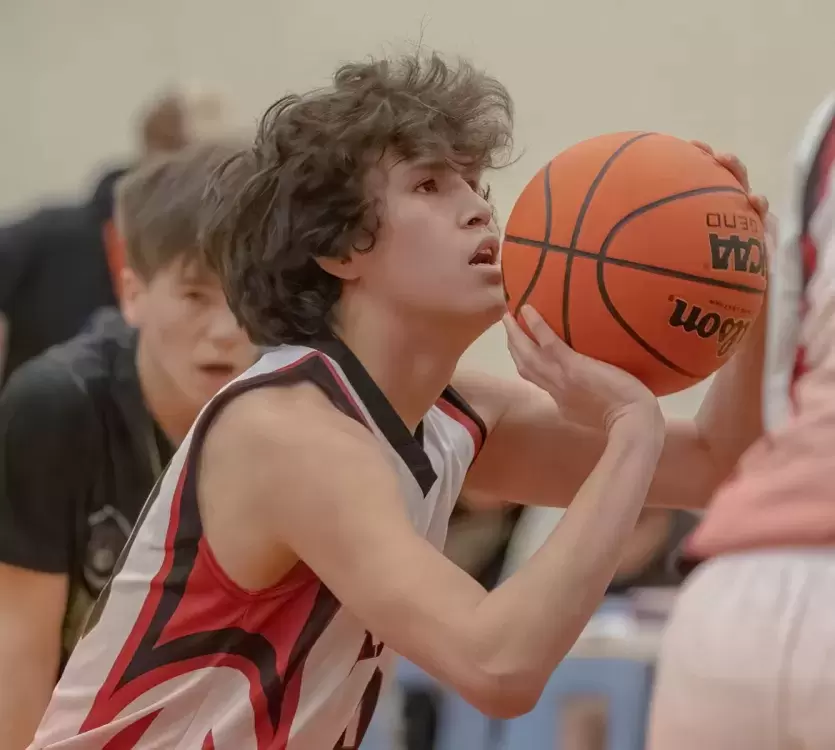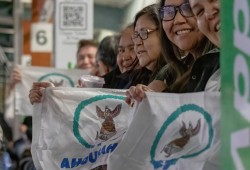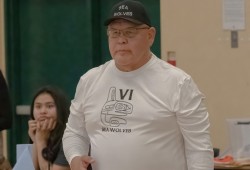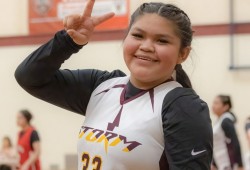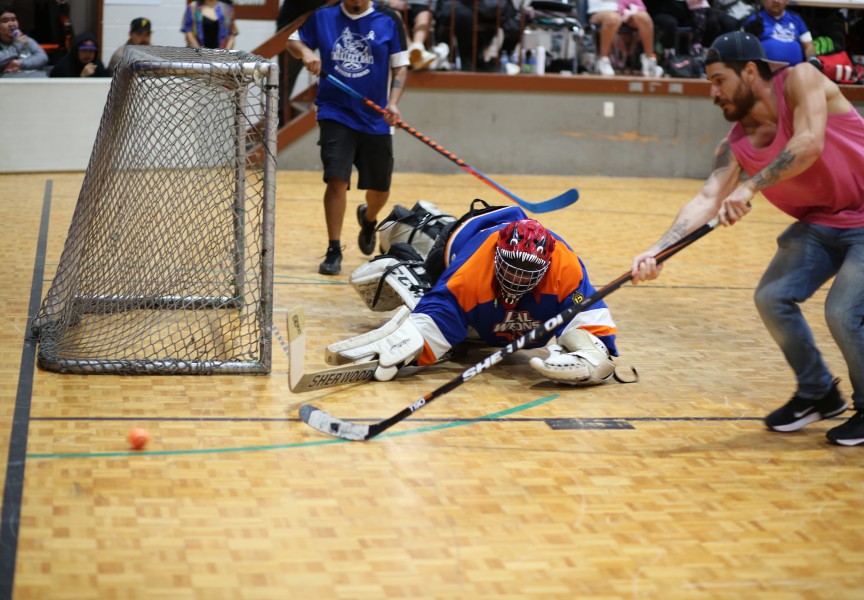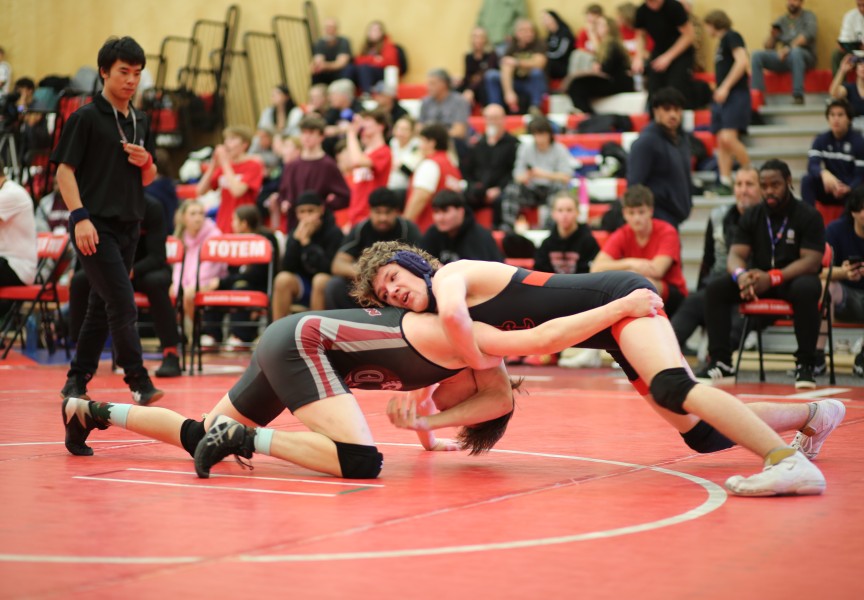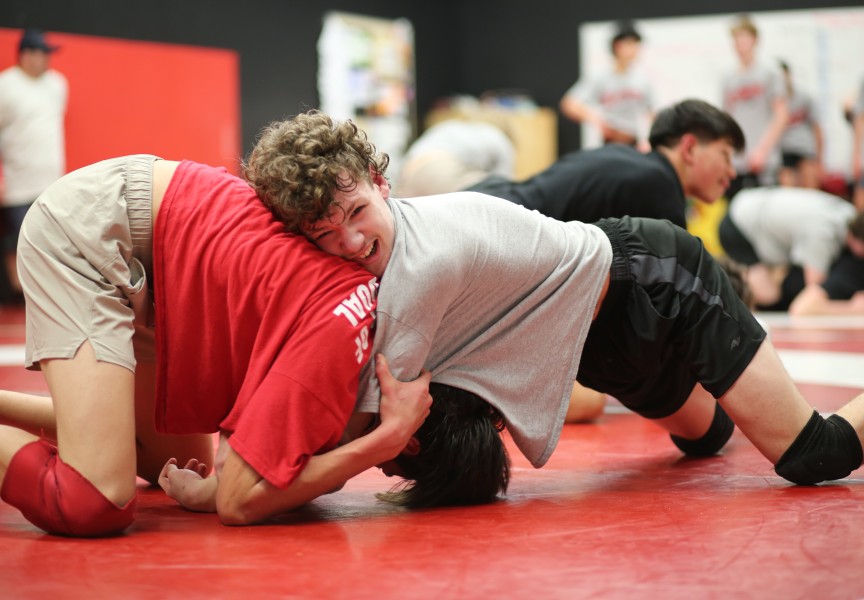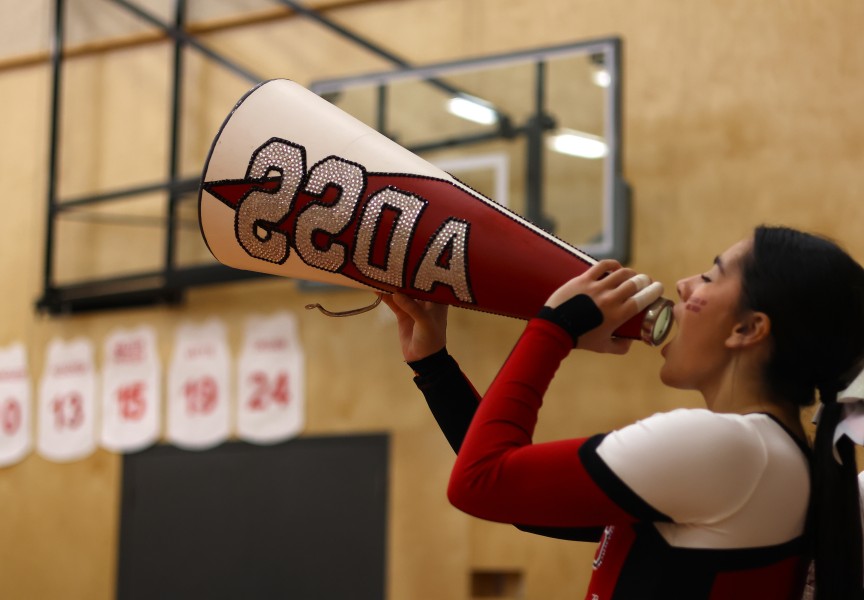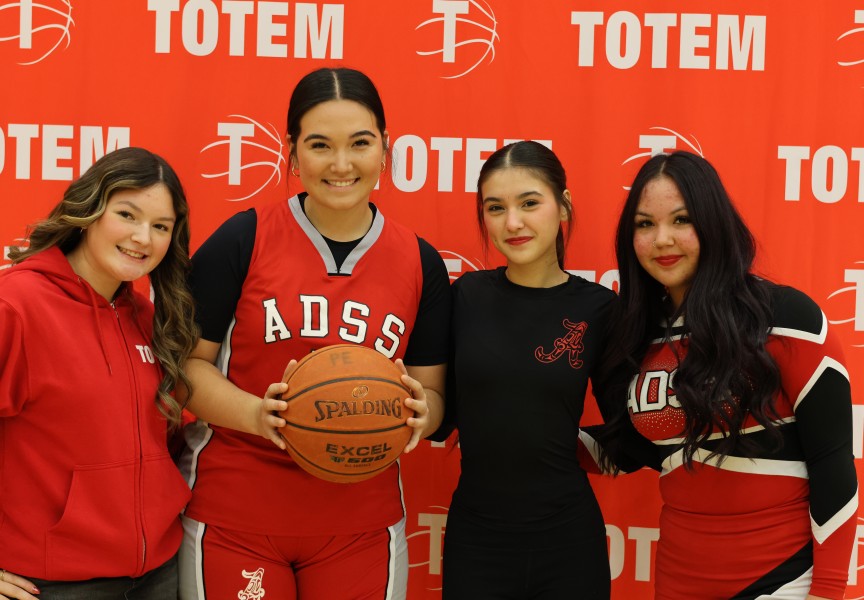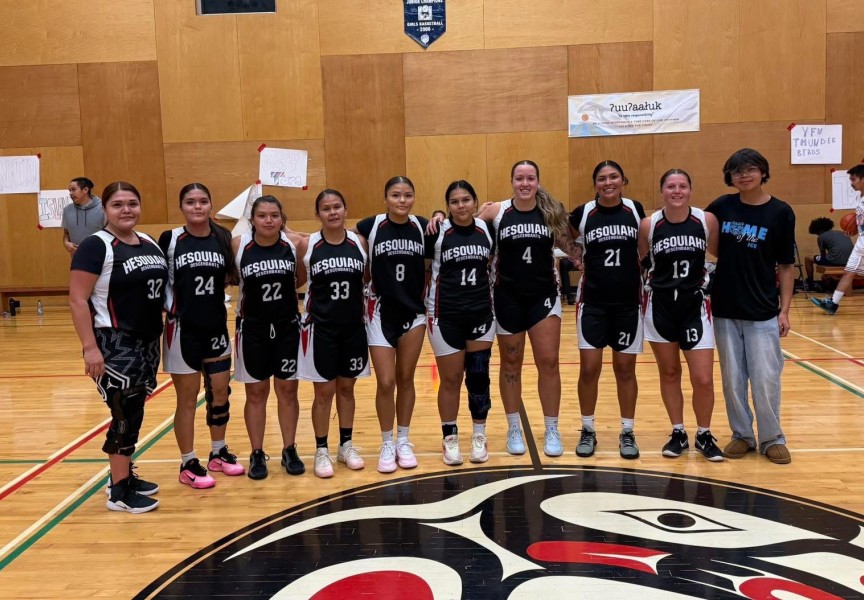Off the western coast of Vancouver Island, within the rocky shores of Flores Island, an inexhaustible passion for basketball has been breeding for over a generation. On any given night of the week you’ll have a hard time finding free court space in the Maaqtusiis school gym, as the Ahousaht community continues its love affair with a sport normally associated with North America’s inner cities.
“In Ahousaht basketball is a way of life,” said resident Tom Campbell. “When they’re two or three years old they start throwing a ball through a hoop.”
The community’s deeply ingrained connection to the sport was evident at the Junior All Native Tournament in late March. Ahousaht sent at least half a dozen teams to the event in Nanaimo, where Aboriginal squads from throughout British Columbia converged. Campbell was there to coach the Vancouver Island Sea Wolves to its championship in the 13-and-under boys category, continuing a dedication to a sport he has pursued for most of his life.
“It’s in Ahousaht’s blood, basketball,” said Campbell, who has found the sport to be valuable in keeping connections. “The friendships that are created, relatives seeing relatives that they didn’t know about.”
With an on-reserve population of approximately 1,000, Ahousaht is particularly young. The most recent census data from 2016 cites an average age of 30, and more than a third of the community’s residents are children.
“If there’s a basketball hoop out there you’re going to see a kid shooting around,” observed Melinda Swan, an Ahousaht resident who managed the Maaqtusiis Thunder, another team from the community that competed at JANT in March. “It’s not only the children; it’s young adults too that are using basketball for their own leisure.”
Such an outlet is valuable for a remote community that has clearly struggled with addiction in recent years, according to statement publicized a year ago by acting Tyee Ha’wilth Hasheukumiss. The acting hereditary chief blamed alcohol and its related diseases for most of the community’s deaths over the proceeding two years, plus incidents of domestic violence, drunk driving and sexual assaults. Hasheukumiss cited a steady flow of complaints from his muschim (commoners) of bootleggers selling to minors, a result of the 300-500 bottles of vodka that he reported were coming to the community each week.
This concern led Ahousaht Ha’wiih to urge that the District of Tofino adopt a bylaw limiting hard liquor sales to two 26 oz. bottles per customer.
But such attractants can be avoided on the hardcourt, noted Luke Swan Sr., coach of the Maaqtusiis Thunder.
“It’s a way of life, it’s a way of getting away from things,” he said.
Melinda Swan added that she’s seen the sport build a foundation in youngsters that might not be offered at home.
“With the group that we’ve managed over many years, they’ve got to be doing well at home, doing well in school to be able to participate and not be involved in smoking or drinking,” she said. “We not only expect to teach them basketball, we teach them other fundamentals too. Things that they’ll possibly be able to use in their life.”
Over his childhood in Ahousaht, Campbell recalls a time when basketball wasn’t as big as it is now. Things changed when hydro electricity came to the community in the early 1980s, allowing a gym to be powered in the evening. When he was a boy, fastball was the big game in the village.
“We didn’t have power when I was a young boy…we were home by quarter to nine, 9 o’clock,” recalled Campbell of a time when facilities relied on generators for light. “If the generator broke down and you weren’t home at night, you were crawling home on your hands and knees.”
“I’ve seen in the past people make attempts to get children interested in soccer and it lasts for a little while,” noted Melinda Swan. “We’ve had skate parks built in our community and it was very popular for a little while, but basketball is constant. It’s something that can happen all year, every year for a lot of years.”

